Marine Biology Immersion Camp
Overview
During this eleven-day program, rising 9th graders – recent high school graduates will develop an appreciation and respect for our oceans that will remain with them for a lifetime. Join teens from all over the world as we immerse ourselves in the care of sea turtles and explore the habitats that support them. You will work alongside the volunteers and interns of the Karen Beasley Sea Turtle Rescue and Rehabilitation Center. From assisting with feeding to cleaning tanks, you will understand the enormous amount of time, effort and love poured into every turtle.
You will earn 25 community service hours through your work at The Karen Beasley Sea Turtle Rescue and Rehabilitation Center, beach sweeps, and public outreach. We will research, prepare and present a lesson to the public describing the challenges facing all sea turtles. While walking the beaches looking for nesting mothers, we’ll learn about nocturnal adaptations. We’ll also patrol in the mornings looking for fresh tracks.
Each day we will explore different coastal habitats from maritime forests to salt marshes to the ocean’s edge. By understanding these ecosystems we will better appreciate the plight of the sea turtle. Since the Sea Turtle Stranding and Salvage Network began keeping records in 1986, the number of stranded turtles has more than doubled, illustrating how much work there is to be done. With our other time, we will discover the wonders of our local coastal habitats from the muddy marsh bottom to the crest of breaking waves.
This camp is designed for rising 9th graders – recent high school graduates passionate about sea turtles and the marine environment. Join us on our next adventure as we:
- Work closely with interns at the Karen Beasley Sea Turtle Rescue and Rehabilitation Center
- Search for turtle nests during nest walks
- Tidepool in North Carolina’s only natural rocky outcrop
- Kayak in the salt marsh
- Visit the North Carolina Aquarium
- Conduct a marine sampling trawl aboard a research vessel
- Study marine debris in the Sargasso Sea and other ocean gyres
- Species identification in local salt marshes
- Take a Discover Scuba Diving class to see what it takes to explore the underwater world
- Earn twenty-five hours of community service credit.
**Please note that all activities are subject to change without notice**
Due to our commitment to personal instruction, our low student to staff ratios ensure personal attention and maximize your camper’s educational adventure, and camp sessions will be limited to 24 students. This guarantees that everyone has the best experience possible.
Camp tuition includes: lodging on Topsail Island, all meals from dinner on the first day to breakfast on the last day, 24-hour access to camp staff, admission to all activities, all equipment, and transportation including pick up and drop off from the Wilmington International Airport (ILM), Sea Turtle Hospital donation, community service certificate, Sea Turtle Camp T-shirt and memorable group photo. Campers are responsible for round-trip airfare to ILM or transportation to Topsail Island and additional money for snacks and souvenirs.
2025 Dates
Activities
Coastal North Carolina is surrounded by rich marine ecosystems filled with countless aquatic species. From miles of white sand beaches to fluctuating and dynamic salt marsh habitats, Sea Turtle Camp gives you the opportunity to explore and study these amazing ecosystems. We provide teenagers with the opportunity to learn more about marine biology through hands-on, feet-wet experiential education. Campers get the extraordinary opportunity to work with live sea turtles as well as participate in some amazing daily activities designed to teach them through experience instead of out of a textbook.
During this amazing adventure you will:
- Volunteer at the Karen Beasley Sea Turtle Rescue and Rehabilitation Center
- Conduct a beach sweep and learn about marine debris
- Explore the underwater world with a 2-hour Discover SCUBA course (optional)
- Participate in nighttime sea turtle nest/hatchling watch
- Explore the salt marsh and learn its vital role in the food chain
- Learn Sandstone Ecology in NC’s only natural rocky outcrop
- Conduct water quality testing
- Study dune/beach ecology
- Visit the county landfill and recycling center WASTEC
* * Schedule is subject to change! Please keep in mind that we try our best to adhere to this schedule but we cannot control mother nature! In the event of adverse weather, we have rainy-day activities in place. We cannot control canceled vendors. We will try our best to incorporate what was missed in later days, but it does not always fit into our schedule **
Sample Daily Itinerary
DAYS 1-3
Campers arrive and check-in between 12-3pm. We will conduct a swim test, do fun icebreakers, and end the first day with camp dinner and an opening bonfire. The next day, we will learn about sea turtle anatomy and the illegal wildlife trade. Then we’ll head to the NC Aquarium at Fort Fisher and get a behind-the-scenes tour where they’ll get to feed the fish and meet their live-in sea turtle. Campers will also see and study NC’s only natural rocky outcrop- the coquina. We’ll head back to Topsail for dinner and family time. Day three, campers will begin their volunteer work at the sea turtle hospital, helping to clean, feed, and bathe the sea turtles. After lunch, they will visit the New Hanover County Landfill to learn about where our waste ends up and the importance of recycling. Next, they will do water quality testing and learn about Eutrophication at a local lake. Dinner back at camp is followed by a pier walk and a hands-on marine science activity before lights out at 10pm.
DAYS 4-6
Nest patrol again this morning to look for any new nesting turtles! Campers have a relaxing morning to enjoy the beach and enjoy the fun waves of Topsail. After some lunch, we’ll head to the salt marsh to learn how to seine and cast net. We will catch and release many different species and learn about the importance of salt marshes. Dinner tonight is followed by family time! Day five and we have more sea turtle hospital time! All morning is spent with the turtles and then campers get to embark on a research vessel with Cape Fear Community College. We will conduct a trawl and learn about species in the Cape Fear River. Thursday night is Luau night! Plenty of fun games and ukulele playing are in line. TGIF! This day will be spent in the salt marsh, learning about all of the young animals that use it as a nursery and what it provides to us. Then it’s dinner time and time to head back for a night patrol on the beach.
DAYS 7-11
The morning is spent at the sea turtle hospital. Once the doors open to the public at 12, campers will have a chance to teach what they have learned doing public outreach! After a long day at the hospital, they will have some beach time and maybe do some boogie boarding! We will follow with marine science activities and dinner. Starting Sunday morning with nest patrol- this is followed by a dissection and looking at specimens under a microscope. After lunch, campers will have the opportunity to attend a discover scuba session to try out scuba diving in a pool with our scuba team! Dinner and movie night is to follow. The next day we start the morning off right with a lesson about marine debris and conduct a local beach sweep to see what we find in our own backyard. We will take a trip to UNCW’s Center for Marine Science to learn about the Plastic Ocean Project and tour their lab!
Dinner back at camp and then marine science games to end the night. Now it’s the final day at the sea turtle hospital! Campers say goodbye to their endangered buddies that they have worked so hard with over the last week. We’ll head back to camp to conduct a shark dissection and then tie dye some t-shirts together before dinner! Camp went by too fast! Time to finish up cleaning and have room inspections. Numbers are exchanged and hugs are given. Check-out is between 12:30-1:30 pm and campers flying out depart between 1-2 pm.
Accommodations
While at camp, students will be staying in the heart of the sea turtle action on Topsail Island. Pronounced Tops’l by the locals, this 26-mile long, quarter-mile-wide barrier island has a rich history filled with pirates, fishermen, and surfers. Since Topsail Island is one of the less developed barrier islands in the area, groves of maritime forest still dot the island and are rumored to hide Blackbeard’s treasure. Nowadays, Topsail is known as a laid-back beach town and a sanctuary for sea turtles.
Campers will be housed in a fully furnished retreat center with an ocean view and beach access just a few feet away. This is an ideal location, as we will only be steps from our outdoor classroom. Students will see the sun rise over the ocean during morning nest patrols and the sun set behind the facility shortly before the camp bonfire.

The rooms are gender-specific and feature air-conditioning, comfortable common areas, and gender-specific bathrooms. Each participant will have his or her own bed. Sea Turtle Camp staff members are housed on-site and are available 24 hours a day for campers.
Campers will not only enjoy the breathtaking sunsets from the decks of the Retreat Center, but also private beach access, campfires, and outdoor activities such as volleyball, corn hole, spike ball, basketball, and much more.
As we are only minutes from the Karen Beasley Sea Turtle Rescue and Rehabilitation Center and beach, we can have a more active role in providing care to the turtles at the hospital and assisting the Topsail Beach Nesting Patrol. More hands-on opportunities and nest watching means more fun for the campers!
Frequently Asked Questions
Do I get to see real live sea turtles?
YES!!! We work very closely with the Karen Beasley Sea Turtle Rescue and Rehabilitation Center which has an average occupancy of about 20 sea turtles with varying degrees of injury or illness. Some are even permanent residents due to the severity of their injuries. The NC Aquarium usually houses a few and from time to time we even see them out in the ocean.
What kind of community service will I be doing?
At Sea Turtle Camp service is the most rewarding part of our program, and we like to think of it as service learning. Everything we do at the Karen Beasley Sea Turtle Rescue and Rehabilitation Center, from working directly with live sea turtles to cleaning and feeding sounds more like enjoyment than service, but it is. We also conduct beach sweeps in the local area.
Should I bring a friend?
While most participants come alone, you are welcome to come with a friend. Please indicate in the enrollment that you would like to room together.
I am a finicky eater. Can you cater to special diets?
Yes, we can accommodate many dietary restrictions and preferences. If your camper requires a special diet, we are happy to ensure your camper’s dietary needs are met. You will be asked about food allergies and special diets in your camper forms. If you have additional questions or concerns, our Program Coordinators would love to help you!
Can I call home during camp?
We have all campers check in with their parents upon arrival, but we have limited parental contact for the duration of the camp. Sea Turtle Camp is a growing experience, and we find that young people do best and gain confidence through independence. Campers are NOT allowed to carry cell phones at any time during camp. Any cell phones brought to camp will be collected upon arrival and returned upon departure. Parents will be updated through emails and the many pictures we’ll be posting on Facebook throughout the trip! We will provide an after-hours number to reach the office in the event of an emergency.
Is my camper allowed to bring electronic devices?
At Sea Turtle Camp, we promote immersive, hands-on learning experiences that are free from electronic distractions. While campers are allowed to bring cell phones and electronic devices for their arrival and departure days, once they have checked in with their parents/guardians and settled into camp, all electronic devices must be surrendered to our camp staff. These devices will be securely stored throughout the duration of the trip. It’s important to note that if any electronic device is discovered in a camper’s possession after the initial handover, it will be confiscated, and appropriate measures will be taken. However, we do permit campers to bring MP3 players and e-books. Please be aware that any device capable of connecting to Wi-Fi is not allowed.
What airport is best to fly into for your program, and do you provide a shuttle service?
The airport to fly into is the Wilmington International Airport (ILM), which is located 45 minutes from our facility on Topsail. Our educators meet all participants at baggage claim OR their gate. The shuttle cost to and from this airport is included in the program tuition. Participants must arrive and depart between 12-3 pm to ILM. If you have to arrive outside of our arrival and departure times, there are additional fees for a separate shuttle pickup.
What if I can't get in by the set check-in time?
Please contact our Program Coordinator to discuss arrivals and departures outside of our preferred times. In order to avoid missing any planned activities, participants driving in should try to arrive between 12:30 – 2 pm on the first day and depart around 12:30- 1:30 pm on the last day of camp.
What is your cancellation policy?
Sea Turtle Camp is an extremely high quality, tight margined program with limited space. Therefore, once your student has been accepted into the program, exceptions to this policy cannot be made for any reason, including weather or personal emergencies. We strongly recommend families purchase trip insurance to protect their investment. Additional information for trip insurance coverage and providers can be found here. Please review the terms of our cancellation policy. In order to enroll in Carolina Ocean Odyssey, you must agree to these terms. Our full cancellation policy can be found here.
Does my child need to know how to swim to be able to attend this program?
Since water activities are physically demanding, we do require that campers be able to swim 25 meters unassisted and be comfortable in water where they can’t touch the ground. Our lifeguard-certified staff will conduct a swim test on the first day of camp to ensure the safety of each camper whenever they are in the water.
















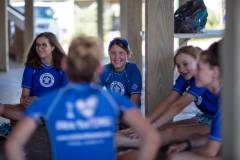
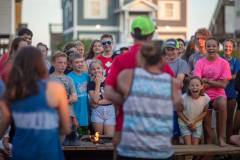
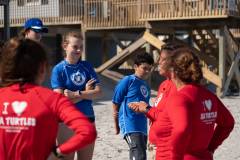
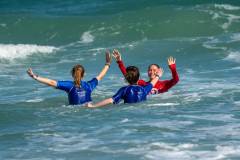
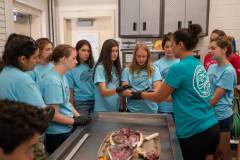
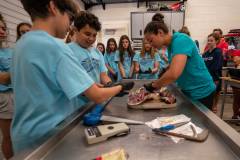
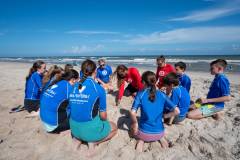
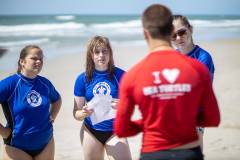
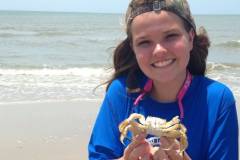
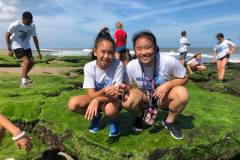
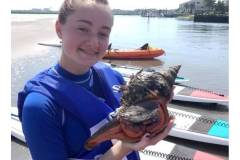
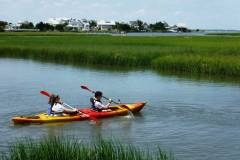
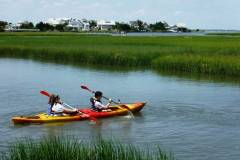
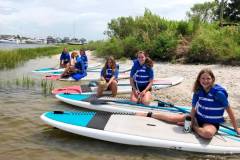




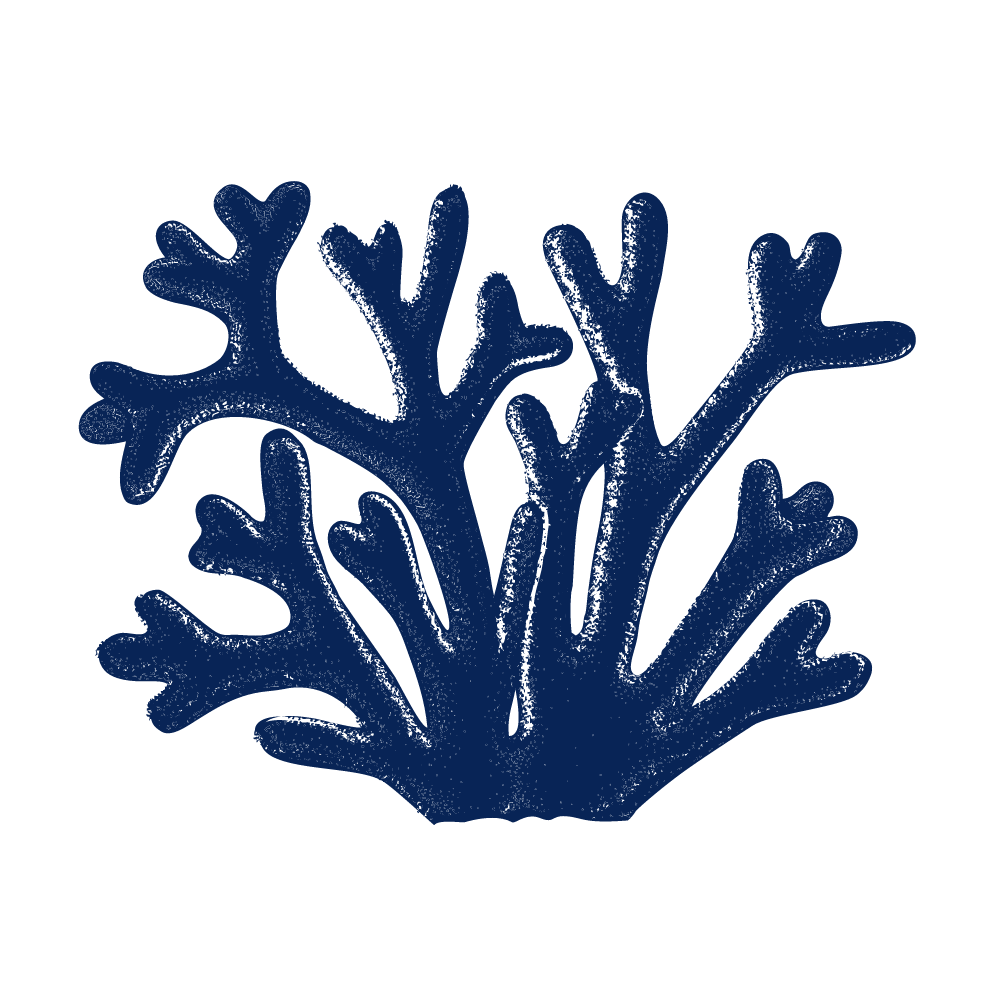 Marine Bio
Marine Bio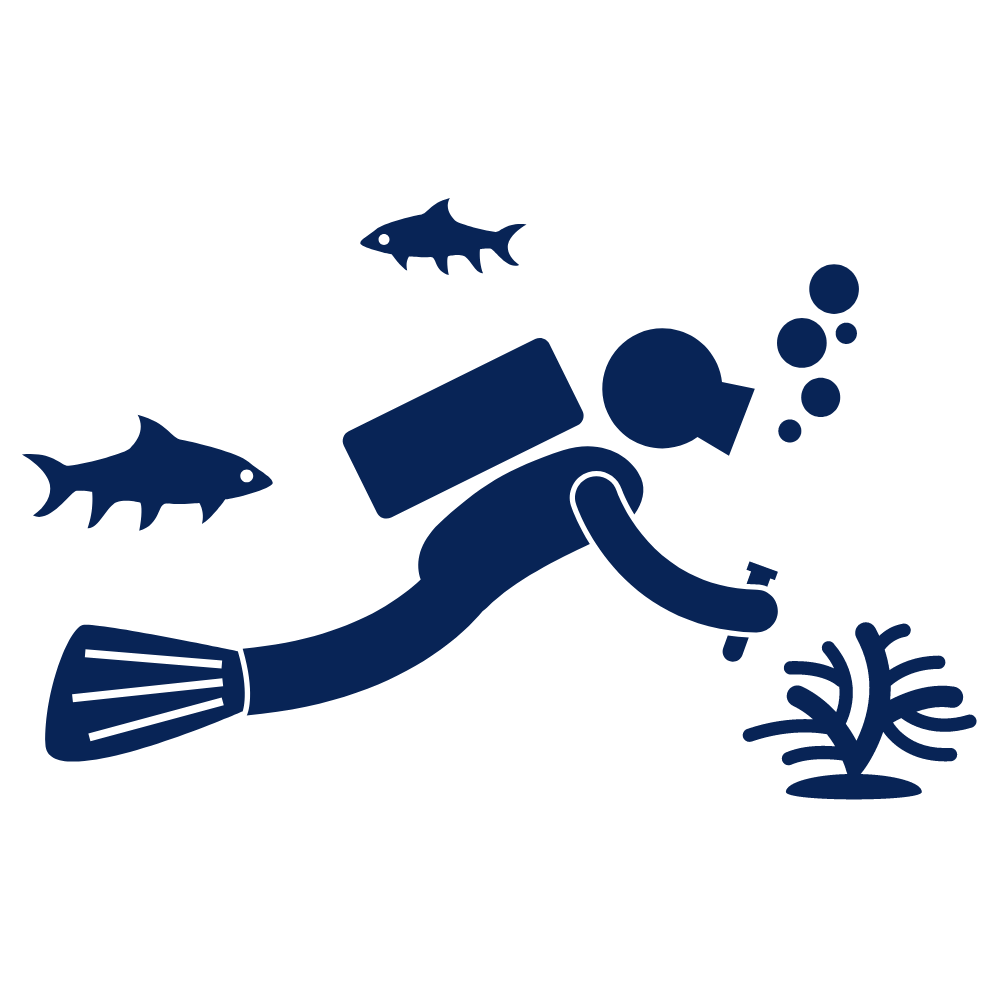 SCUBA
SCUBA Travel
Travel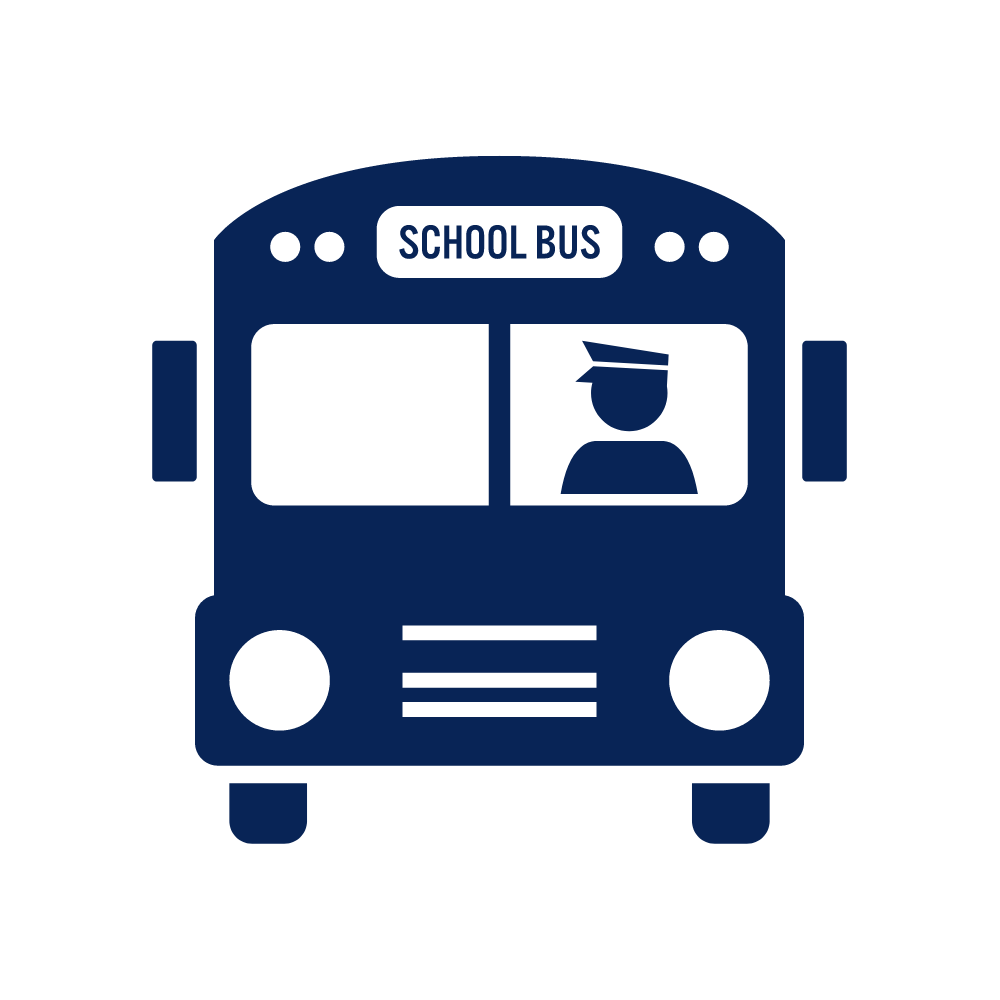 School Groups
School Groups Sign Up
Sign Up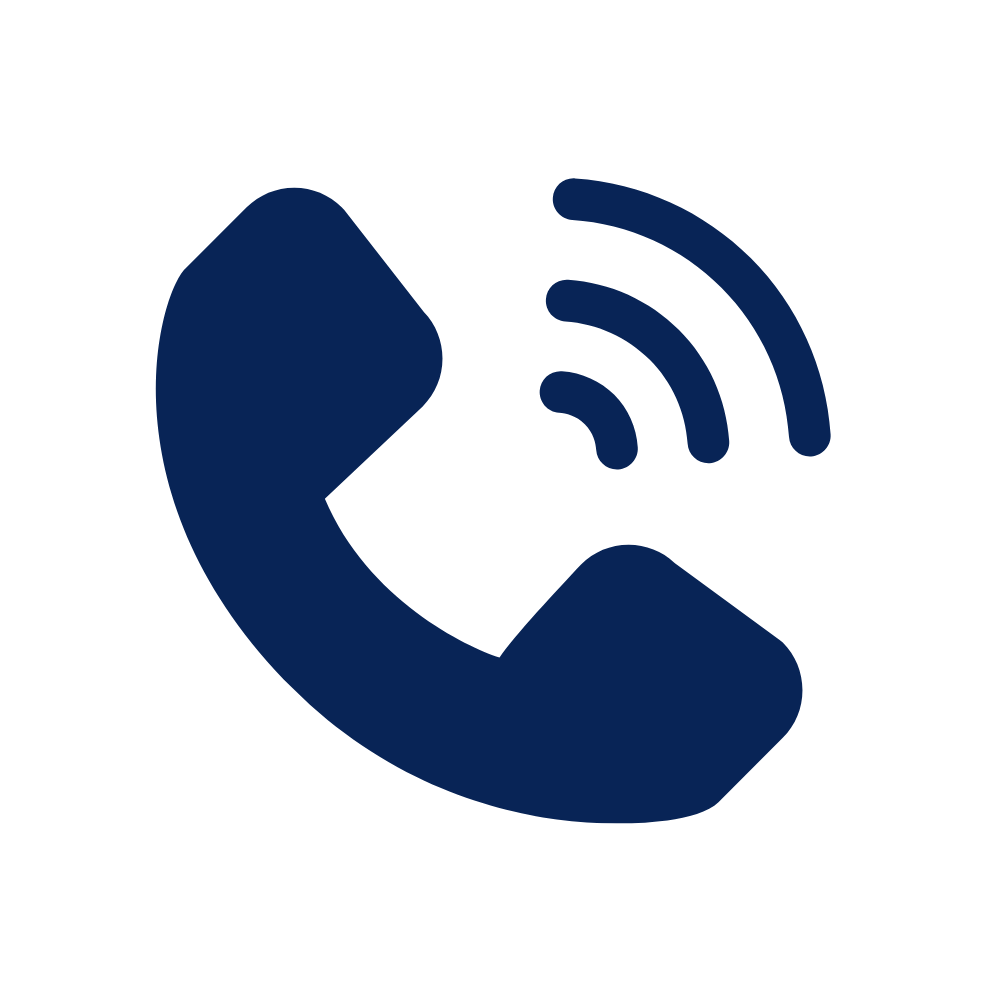 CONTACT
CONTACT CAMPS
CAMPS ABOUT
ABOUT